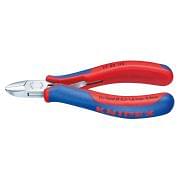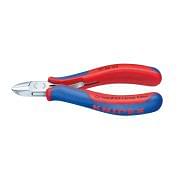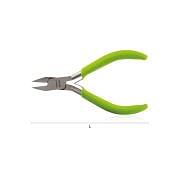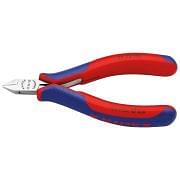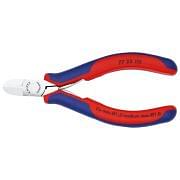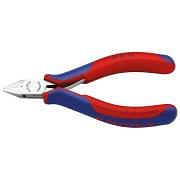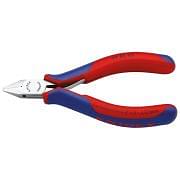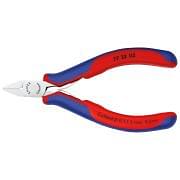Cutting nippers
Cutters are an essential tool in machine shops, used to cut wires, cables and small pieces of metal. Known for their precision and robustness, cutters are designed to tackle a wide range of jobs, from the most delicate to the most demanding. Available in several variants, including side cutters, front cutters, cable cutters and precision cutters, they offer specific solutions for every need.
Pliers Bit Features:
- Materials of Construction: The cutters are made of high-strength steel, often heat-treated to improve hardness and durability. Some models also feature anti-rust coatings for increased longevity.
- Ergonomic Design: Ergonomic handles, often covered with non-slip rubber, provide superior comfort and reduce fatigue during prolonged use.
- Precision Cutting: The sharp, well-aligned blades allow for clean, precise cuts, essential for jobs requiring high precision.
- Lever Mechanism: Some cutters are equipped with lever mechanisms that increase the force applied, making it easier to cut harder materials with less effort.
Cutters enable quick and precise cuts, improving work efficiency and reducing processing time. With several variants available, it is possible to find the perfect cutter for every job, whether cutting thin wires or thick cables.
Thanks to their robust construction, the cutters are reliable tools that can withstand heavy use without compromising performance.
The use of quality cutters reduces the risk of accidents, thanks to clean, precise cuts that avoid excessive strain and sudden movements.
In machine shops, cutters are used in various operations, such as cutting wires, preparing electrical cables, finishing metal components and removing excess material. Choosing the right cutters depends on the type of material to be cut and the precision required.
Side-cut cutters are ideal for cutting wires and small metal components, while front-cutters are perfect for operations requiring extreme precision. Cable cutters are designed to handle cables of different thicknesses, offering a clean cut without damaging the insulation.
Cutters are an indispensable tool in machine shops due to their versatility, reliability and precision. Investing in quality cutters means improving operational efficiency, ensuring high quality results and reducing the risk of accidents at work.




